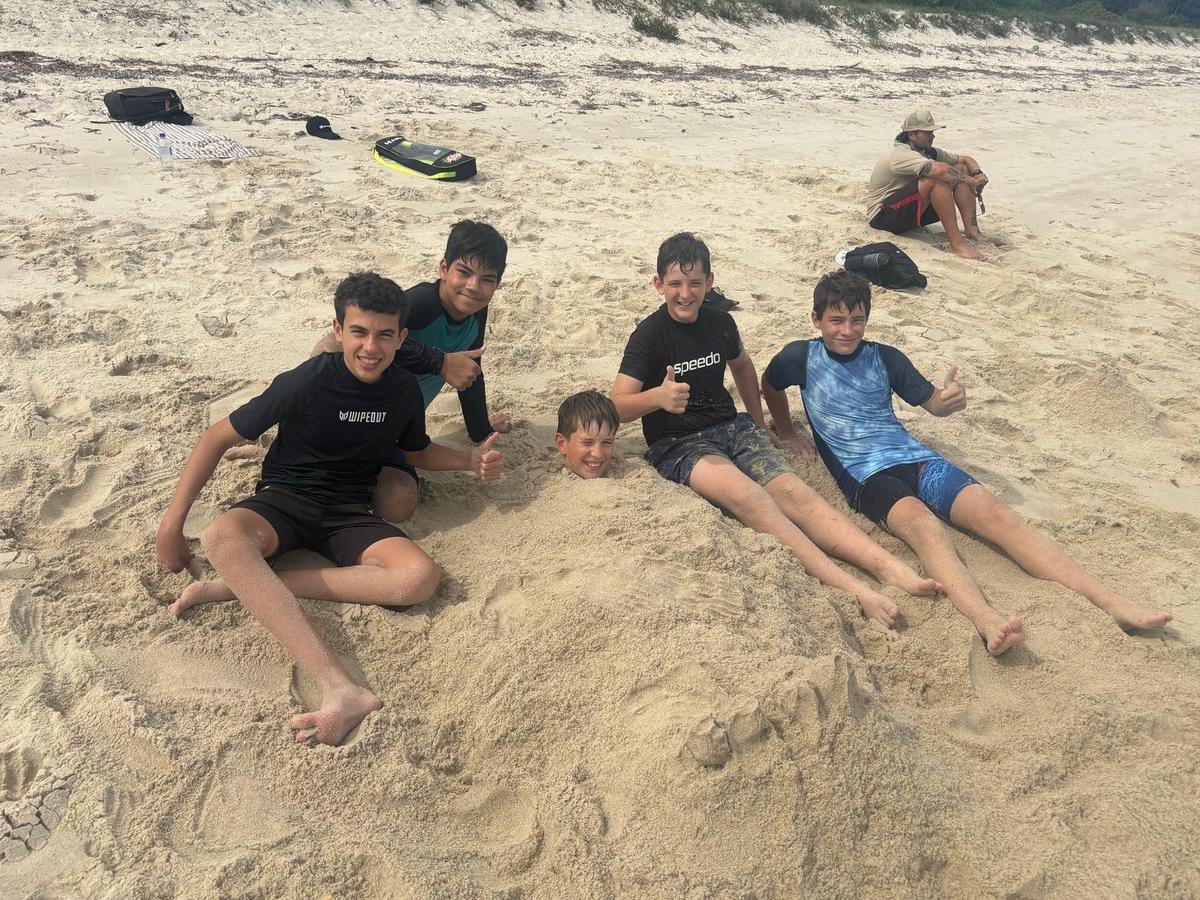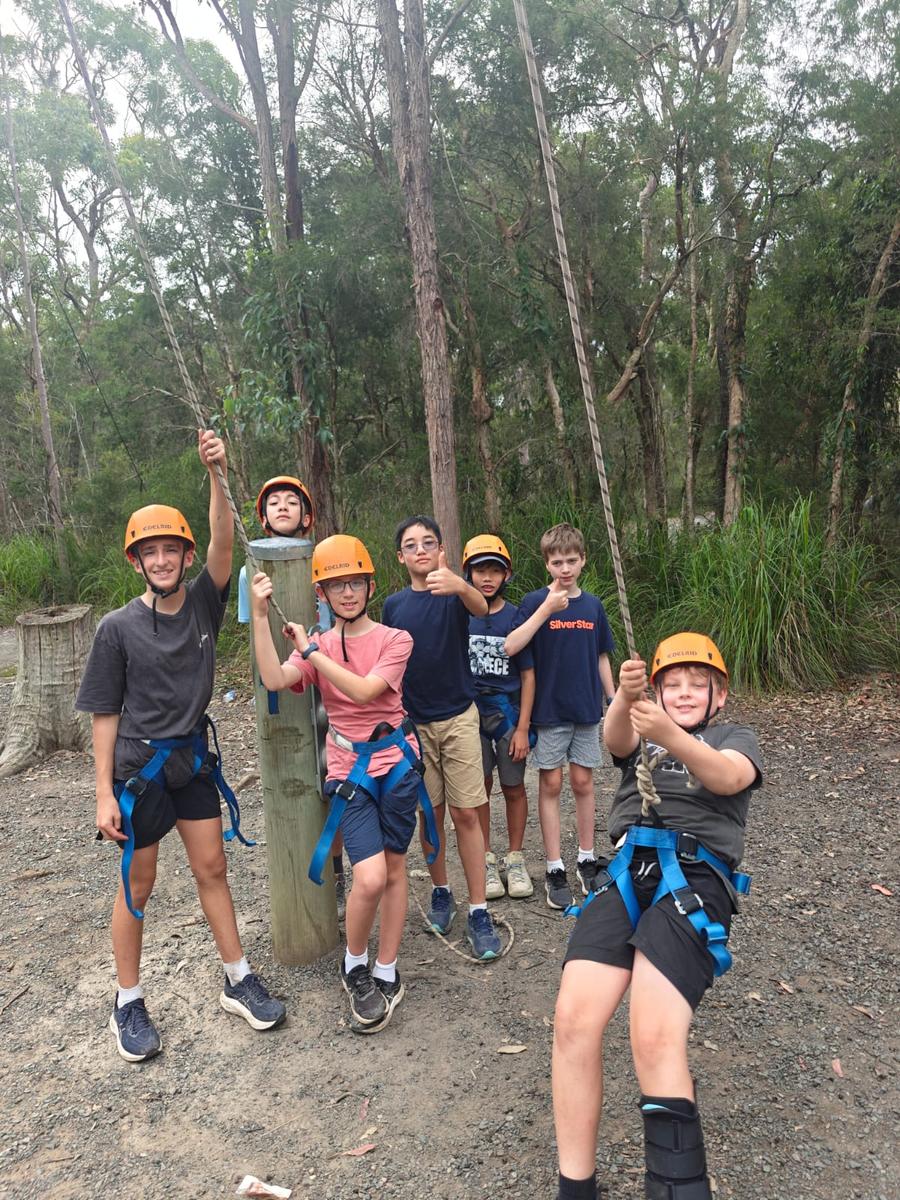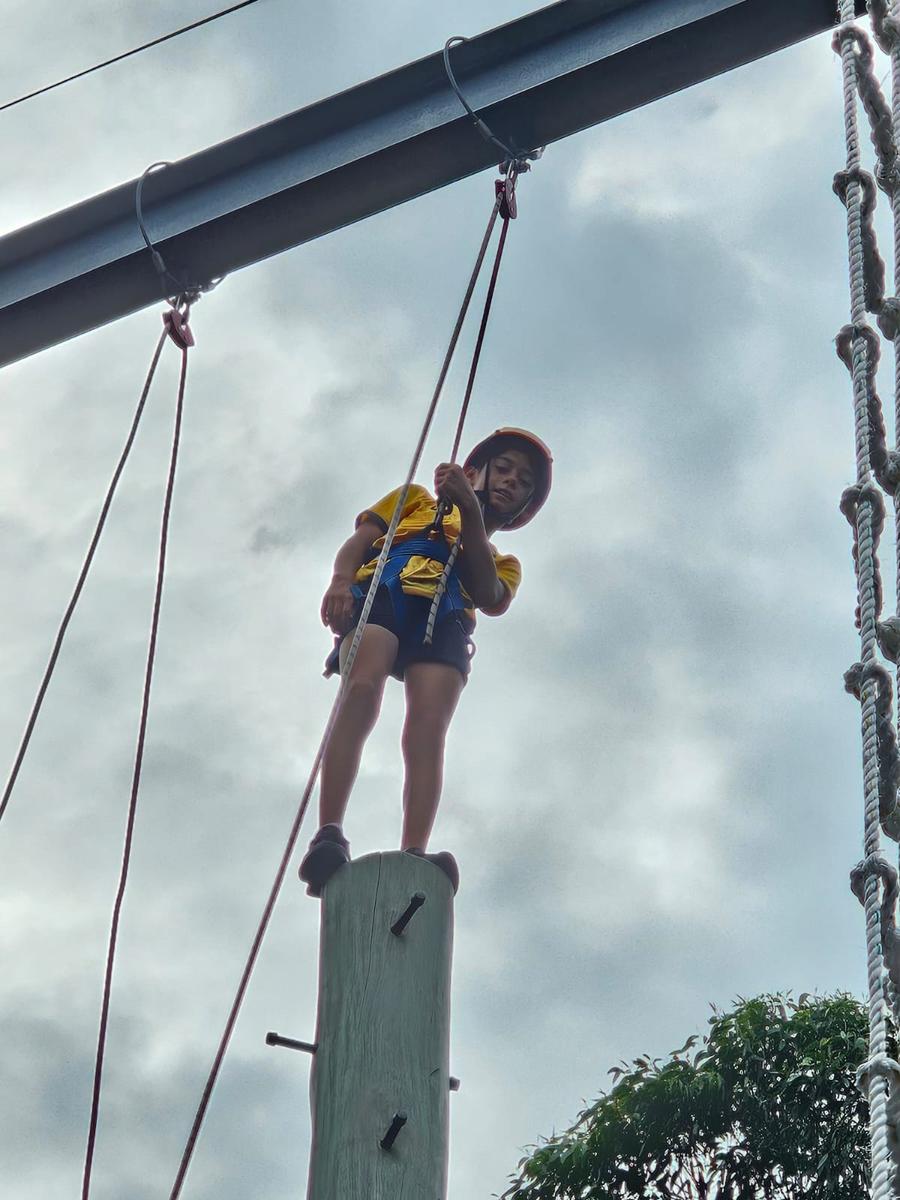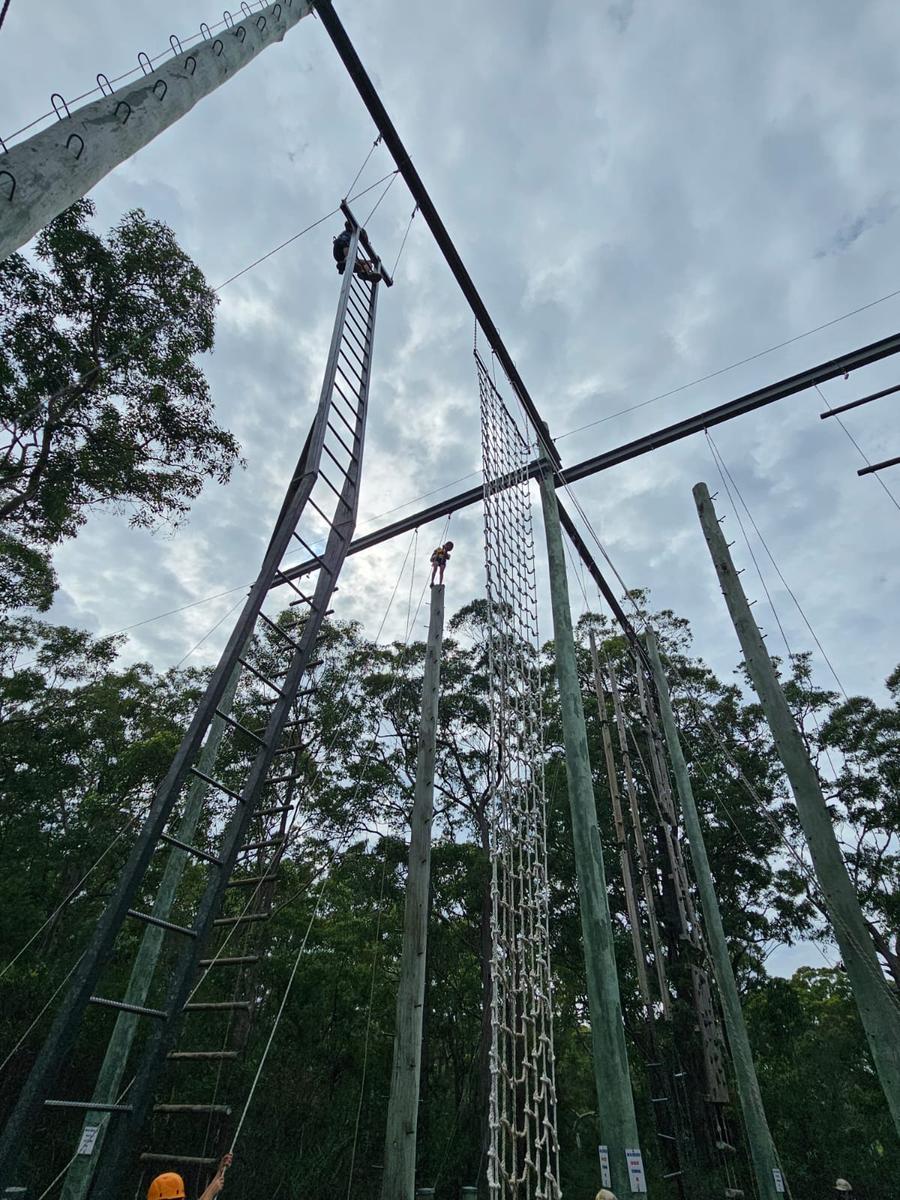Pastoral Care

Year 7 Camp
IT Safety and Duty of Care at Home
Cybersafety
Why do students come to school so tired on Monday?
Year 7 Camp
The Great Aussie Bush Camp was a monumental mark in the lives of the Year 7 students. Every task we endured strengthened our camaraderie which went with Year 7's motto - ‘Belonging to a Team’. The tasks consisted of alpine rescue, power fan, beach activities, kayaking, bush craft, the vertical challenge, archery and my personal favourite the flying fox. They were all physically challenging as you might expect, but they also challenged us mentally. An example of this is in the alpine rescue where you had to roleplay like you are on the frigid alpines and you have to carry an injured man on your expedition to safety. It was physical and mental and forced you to cooperate and work out how we can work as a team.
Another great aspect of camp was the delectable food as we were well fed for the fun and laborious day of activities ahead. We were given morning and afternoon tea each day and got snow cones which you could customise to your liking with flavouring which was a nice touch.
The accommodation was a wonderful part as it reminded you that you were camping in the great bush. We also had night activities such as trivia and commando where we were out in the bush and were trying to find 'hostages' whilst teachers tried finding us with flashlights.
All together, the Great Aussie Bush Camp was a recreational experience that widened our emotional range and connected the whole year group, whether that was through the activities, in our tents, or just by talking around the campsite. It helped us join together as a team.
By Ryan De-Fina - Year 7 student
IT Safety and Duty of Care at Home
We have received concerns from parents about students accessing unsafe websites at home. Many of these sites frequently change their names and domains, making them difficult to track and block.
While the college’s ICT Department continuously updates security measures, parents are encouraged to stay vigilant. Regularly monitor your child’s online activity, use parental controls, and have open discussions about internet safety.
By working together, we can ensure a safer digital experience for students. Your involvement is key to keeping them safe online.
Cybersaftey
On the back of my article last week, School TV has a great resource on Cybersafety, with information and short videos giving parents some powerful information on this topic. Please take the time to review.
This month on SchoolTV - Cybersafety
Young people today are growing up in an increasingly connected world where technology is part of their everyday lives – for learning, socialising, and entertainment. While the digital world offers enormous benefits, it also comes with serious risks. From cyberbullying and online predators to inappropriate content and screen time concerns, navigating the online environment can be challenging for young people and their families.
Cybersafety is not just about blocking access – it's about empowering young people with the knowledge and skills they need to use technology responsibly and safely. This includes understanding privacy settings, recognising scams, and developing healthy digital habits. At the same time, it's important for parents and caregivers to stay informed, have open and judgement-free conversations with their children, and lead by example through positive online behaviour.
In today's digital age, safeguarding a child's wellbeing must also include protecting their online life. This edition of SchoolTV will help you better understand the digital landscape your child is navigating and offer practical strategies to help them stay safe, confident and in control online.
Here is the link to the Cybersafety Edition
https://spx.nsw.schooltv.me/newsletter/cybersafety-au
Why do students come to school so tired on Monday?
There are numerous reasons why this could happen.
Sleep Patterns and Fatigue
Weekend Sleep Schedule. Many students tend to stay up later and sleep in later during weekends, disrupting their regular sleep-wake cycle. This can lead to fatigue and difficulty adjusting to the early morning wake-up times required for school on Mondays.
Sleep Debt: If students don't get enough restful sleep over the weekend, they may start the week feeling tired.
Psychological Factors
• Anxiety and Stress: Anticipation of upcoming assessment tasks can create anxiety about the week ahead.
• Loss of Weekend Freedom: For some young people, transitioning from either a relaxed (or, for some, hectic) weekend to a structured school routine can be challenging, especially after enjoyable weekend activities.
Social and Environmental Factors
• Social Withdrawal: Returning to school after socialising over the weekend can feel isolating.
• Weather and Seasonal Changes: Unfavourable weather conditions, like an ongoing heat wave, gloomy skies or cold temperatures can negatively impact mood, energy and enthusiasm, especially on Mondays.
Habit and Routine
• Inconsistent Morning Routine: Without a regular morning routine, a student may struggle to wake up and feel alert on Mondays.
• Unhealthy Habits: Consuming heavy meals or caffeine late, playing games after lights out or ‘doom scrolling’ on Sundays can disrupt sleep and lead to Monday morning fatigue.
Motivation and Engagement
• Lack of Interest in Schoolwork: Disengagement from schoolwork can make it difficult for a student to feel motivated about the week ahead.
• Too Much in Too Short a Time: Many students in higher year levels can spend much of the weekend doing some - or ALL - of the following: part-time work, play sport, parties and other family or social events, as well as working on homework and assignments.
Mr Martin Gillogly - Assistant Principal, Pastoral Care






